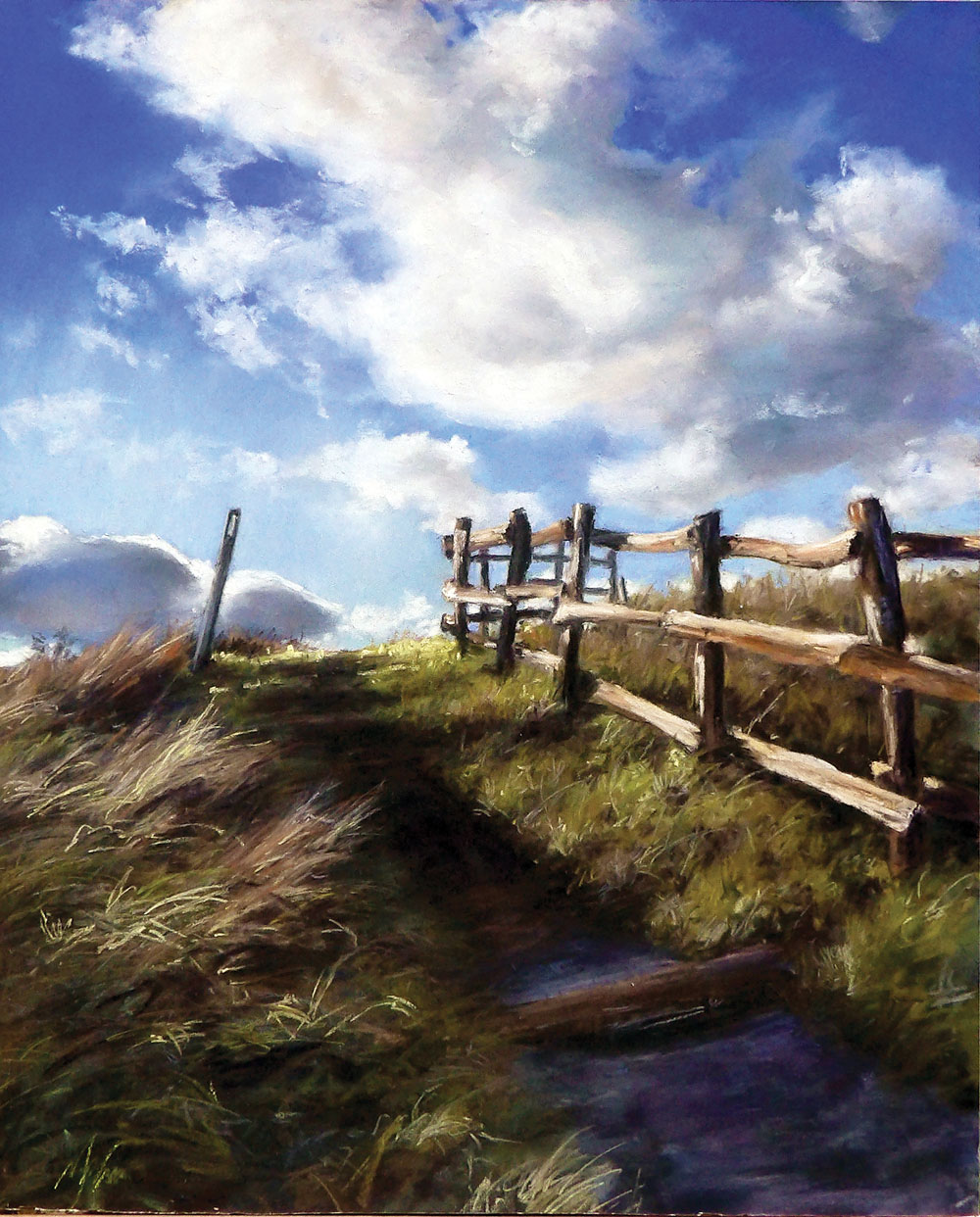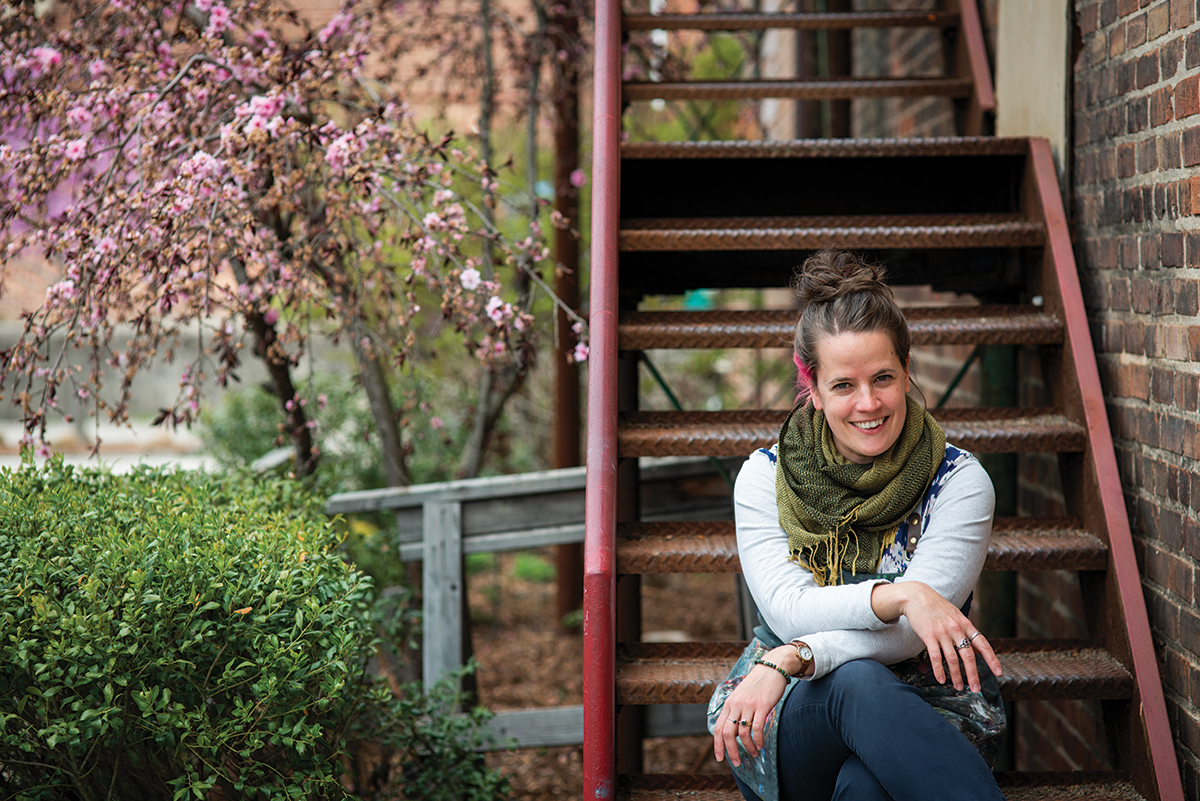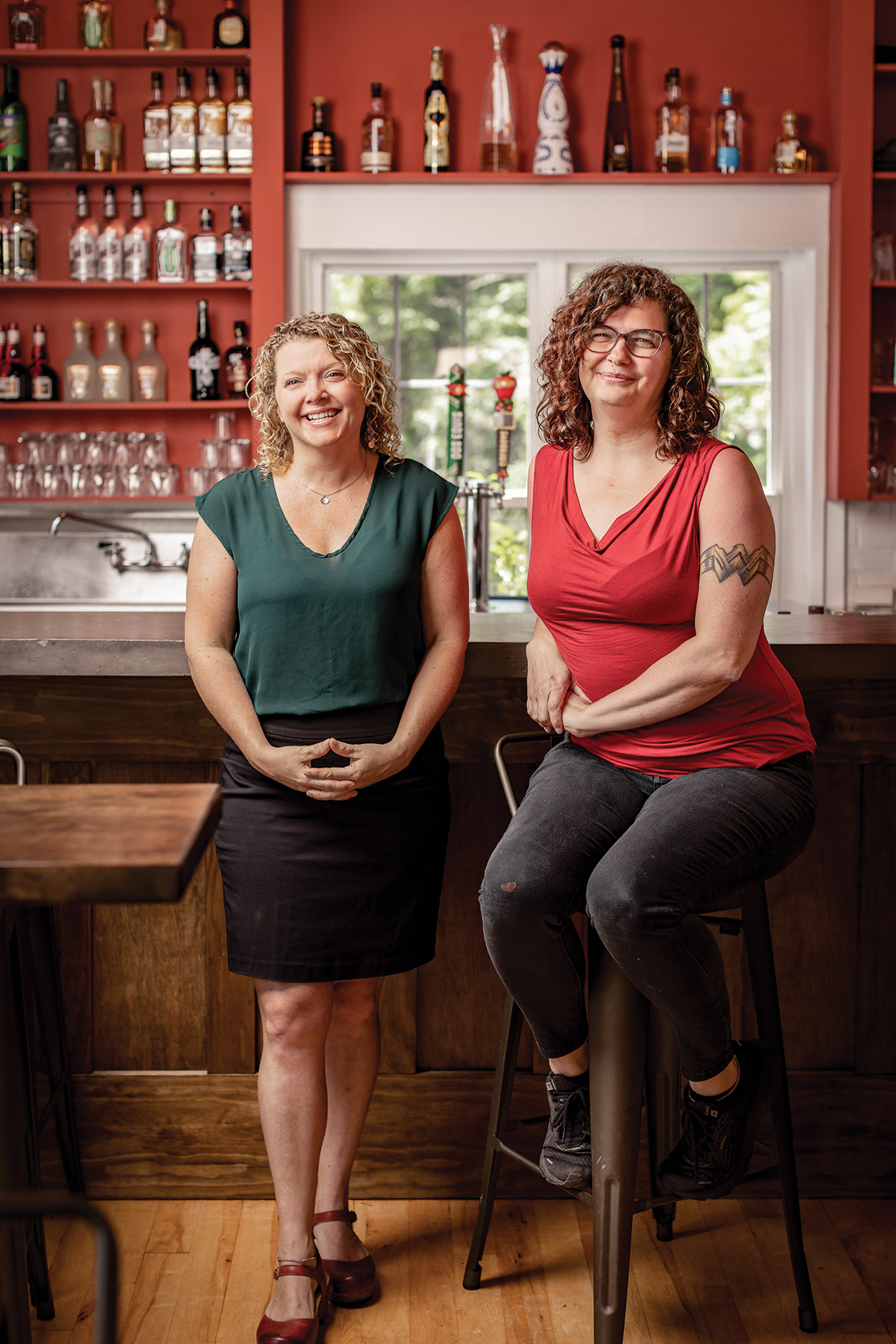
Every dog has had its day in Saluda since 1962. Local residents turn out en masse, too. Photo courtesy of the Historic Saluda Committee
Two generations of Carl Lee McGraw’s family harvested raccoon meat and took the pelts to market. For his granddaddy and daddy, rambling through Polk County pine thickets and Southern Appalachian bogs, heels sinking into Sphagnum moss and motor-oil mud, put food on the table. Back then, hunting was a means to an end, but somewhere along the way, perhaps after modern sensibilities flooded Saluda via wooden water pipes, it became a sport.
“We don’t make it a habit — killing coons, I mean,” McGraw maintains. A veteran woodsman since childhood, the North Carolina native has spent 80 years training Black and Tans, an underdog often overshadowed by more popular regional hounds Plotts and Redbones. Bred and raised by McGraw himself, the hounds sometimes run seven nights a week, their guttural barks reverberating through laurel brakes. “Nowadays, we just leave him sitting up there in the tree,” he continues, referring to the masked mammal.
Since raccoons are nomadic, known to wander in search of slugs and the occasional domestic garbage bin, it takes a boondocks-honed finesse to even locate the creature. “He don’t stick around,” says McGraw. “He’ll move from place to place.” Scat and five-toed paw prints in creek beds certainly abet tracking, but in the late 1940s, no amount of sylvan adroitness could turn up a coon.
“Back then, you were lucky if you caught one,” explains Leon Morgan, a lifelong Saluda resident and current owner of the famed, 117-year-old M.A. Pace General Store on Main Street. Excessive hunting, borderline poaching, and disease devastated the local ringtail population, leaving Piney Mountain and Macedonia, habitual stomping grounds for Morgan, barren. Only a small faction of coons remained, secluded by the uncultivated terrain at Green River Cove.
Seeking to preserve the time-honored practice, the late Dewitt Summey and George Johnson (a likable brick mason, skilled at telling good jokes, according to McGraw’s accounts) founded the Blue Ridge Coon Club, around 1949. The organization followed a “worried discussion” on Johnson’s front stoop and a consultation with a wildlife expert, an unassuming man who offhandedly suggested restocking the area.
His counsel quickly gave way to fundraising barbecues, folks gathering at Ellick Pace’s lake the first Saturday after Independence Day. Half-chickens sold for a buck and wives served up all the fixins — tater salad, yeast rolls, and green beans stewed for hours with fatty pork. The Mountaineer String Band offered entertainment, and all donations went to buying Alabaman and Georgian coons.
“We tried to put on a good dinner,” McGraw recalls. Granted, he says a bit heedlessly, there “ain’t much to do hereabouts, but it seemed to be the best part of the year.”
Still, made a bit green by the 1962 “Old Prospector” parade, a grand affair that celebrated the opening of the local Rock and Mineral Museum, the suppers soon evolved into an annual parade in 1963. The lineup showcased coons, naturally, but also the town’s self-disparaging humor. The “hillbilly,” played by Saludan Ron Poole in 1989, was a crowd favorite, says Cindy Tuttle with the Historic Saluda Committee. Dressed in overalls, the hayseed-looking character transformed the float for the First Baptist Church. Phonetic spellings on the float’s signs — “furst” and “preechurz” — enhanced the effect.
“Humor is a must for those participating or attending,” Tuttle says.
Respect for the sport is also necessary. “I’ve been coon hunting in British Columbia and Canada,” McGraw explains. “It might just be the only thing I know.”
The 53rd Annual Coon Dog Day celebration happens Saturday, July 9, from 8am-11pm. The day begins with a grueling 5K, courtesy of the area’s rolling knolls (think Saluda Grade-steep), and concludes with a night hunt. Visitors can also enjoy the parade, live music, and dancing. For more information, visit saluda.com or call 828-749-2581.



